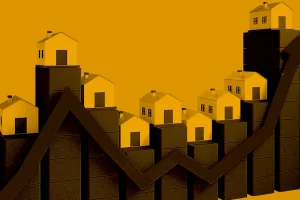Residential real estate investing offers a wide range of opportunities for those looking to enter the market. From single-family homes to condominiums, exploring different residential property types can lead to profitable investments.
Financing for your real estate investments doesn’t have to be an obstacle to success. As your Milwaukee hard money lender, Black Brook Capital provides guidance and support in your real estate journey.
Real Estate Market: Single-Family Homes, Townhouses, and Condominiums
Single-Family Homes
Single-family homes are a popular choice for residential real estate investing due to their potential for long-term appreciation and rental income. These properties offer the advantage of attracting families and tenants seeking more space and privacy.
Consider factors such as location, school districts, and neighborhood amenities when evaluating single-family home investment opportunities.
See also:
- Getting Started Flipping Houses
- House Flipping Mistakes to Avoid
- The BRRRR Method of Real Estate Investment
Townhouses
Townhouses provide a balance between single-family homes and condominiums. These multi-level properties are typically attached, offering affordability and low-maintenance living.
Townhouses often appeal to first-time homebuyers and individuals seeking a community-oriented living experience. Assess the demand for townhouses in your target market and evaluate factors such as homeowners’ association (HOA) fees and regulations.
Condominiums
Condos are individually owned units within larger buildings or complexes. They offer amenities such as shared facilities, security, and maintenance services.
Condominiums can be attractive investment options, particularly in urban areas or resort destinations where rental demand is high.
However, be mindful of HOA fees, rental restrictions, and the financial health of the condominium association.
Identifying Emerging Neighborhoods with Growth Potential
Market Research
 Conduct thorough market research to identify emerging neighborhoods with growth potential. Look for areas undergoing revitalization, infrastructure development, or attracting new businesses and investments.
Conduct thorough market research to identify emerging neighborhoods with growth potential. Look for areas undergoing revitalization, infrastructure development, or attracting new businesses and investments.
These neighborhoods often offer opportunities for property value appreciation and rental income growth.
Affordability and Demand
For residential real estate investing, consider neighborhoods that strike a balance between affordability and demand. Look for areas where housing prices are still within reach for potential buyers or renters, as this can lead to sustained demand and potential for future price growth.
Analyze factors such as job growth, amenities, transportation access, and planned developments to gauge the attractiveness of a neighborhood.
Neighborhood Stability
Evaluate the stability of a neighborhood by considering factors such as low crime rates, quality schools, and community involvement.
Stable neighborhoods tend to attract long-term residents and create a sense of community, making them attractive for investment.
Analyzing Rental Market Demand and Potential Returns
Rental Market Analysis
 Research the rental market in your target areas to understand demand, vacancy rates, and rental rates. Look for areas with strong rental demand driven by factors such as job growth, educational institutions, or proximity to employment centers.
Research the rental market in your target areas to understand demand, vacancy rates, and rental rates. Look for areas with strong rental demand driven by factors such as job growth, educational institutions, or proximity to employment centers.
Analyze rental market trends and identify underserved segments, such as student housing or affordable rentals, which can present lucrative opportunities.
Cash Flow Potential
Assess the cash flow potential of residential properties. You can do this by comparing rental income to expenses such as mortgage payments, property taxes, insurance, and maintenance costs.
Positive cash flow indicates that the rental income exceeds the expenses, making the investment financially sustainable. Be sure to account for potential vacancies and factor in conservative estimates when projecting rental income.
Long-Term Appreciation
For residential real estate investing, consider the potential for long-term appreciation when evaluating residential properties. Look for indicators such as job growth, infrastructure improvements, and development plans that can positively impact property values over time.
Properties in desirable locations and neighborhoods with limited available land for future development tend to experience stronger appreciation.
The Rise of Short-Term Real Estate Rentals and Airbnb Opportunities
Short-Term Rental Demand
The rise of platforms like Airbnb has transformed the rental market landscape. Short-term rentals provide an alternative to traditional long-term leases, attracting tourists, business travelers, and individuals seeking temporary accommodations.
Research the demand for short-term rentals in your target market, especially in areas with high tourism or business activity.
Legal and Regulatory Considerations
Before embarking on short-term rentals, learn local regulations, zoning laws, and permit requirements.
Some cities or neighborhoods have restrictions on short-term rentals, while others may require licenses or permits. Compliance with local regulations is crucial to avoid potential fines or legal issues.
Property Suitability
Assess the suitability of properties for short-term rentals based on factors such as location, amenities, and market demand. Properties located in desirable neighborhoods, close to tourist attractions, or with unique features tend to perform well as short-term rentals.
Evaluate the competition, analyze occupancy rates, and project potential rental income to determine the viability of short-term rental investments.
Conclusion
By exploring different property types, identifying emerging neighborhoods, analyzing rental market demand and potential returns, and considering the rise of short-term rentals, you can uncover a wealth of residential real estate investing opportunities.
Remember to conduct thorough research, evaluate risks and rewards, and align your investment strategy with your financial goals and risk tolerance.
Financing your real estate investments is an essential
 When you’re ready to start investing in residential real estate, contact us today or check us out on Facebook. We’re focused on hard money lending in Milwaukee, with years of experience in the local construction industry. We are your perfect partner to turn your vision into reality.
When you’re ready to start investing in residential real estate, contact us today or check us out on Facebook. We’re focused on hard money lending in Milwaukee, with years of experience in the local construction industry. We are your perfect partner to turn your vision into reality.








